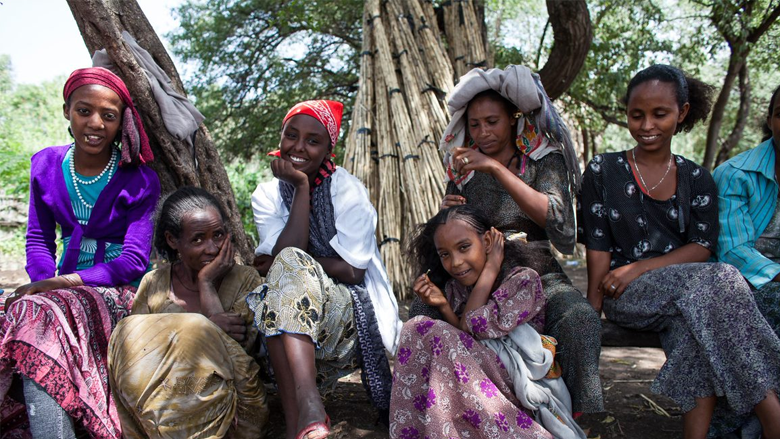In the Horn of Africa, conflicts and famine have triggered the displacement of millions of people within countries and across borders. Today, there are more than 2.7 million refugees and over six million internally displaced people in this part of the world. As the countries of the Horn of Africa were scaling up their responses to a recent displacement crisis triggered by conflicts and droughts, the COVID-19 pandemic hit.
The relationship between host communities and refugees can often be fragile and complex. False or misleading information on COVID-19 has the potential to exacerbate tensions and contribute to the stigmatization of refugee populations. The disruption of informal sector livelihoods, which are a mainstay for refugees and host communities, is a further cause of social tensions.
The IDA-supported Development Response to Displacement Impacts Project (DRDIP), which aims to improve access to basic social services, expand economic opportunities, and enhance environmental management for communities hosting refugees, is shifting its focus in response to the COVID-19 crisis. IDA is scaling up the project to help mitigate the social and economic risks of the pandemic—reaching approximately three million beneficiaries across Djibouti, Kenya, Ethiopia and Uganda.
Under Uganda’s DRDIP, social and water conservation and land clearing activities were implemented among small groups of five people working in rotation and following new social distancing protocols. The operation is helping community organizations share prevention and basic hygiene messages through radio, short message services, and other digital means. The focus has also shifted to providing support to health centers and Water Supply, Sanitation, and Hygiene (WASH)-related investments.
This is part of the World Bank Group’s Horn of Africa initiative, which aims to address some of the key drivers of instability in the region and promote such development. The initiative builds on and complements the large country and regional programs, like DRDIP, and works with other partners to target issues which demand cross-border collaborative solutions to reducing fragility and instability.
The Horn of Africa Initiative is now also exploring innovative ways to help member states address the health and economic impact of the COVID-19 pandemic, deal with drought and other climate-related crises, and to support displaced populations. Countries have come together in multiple workshops to agree on and prioritize their collective efforts, providing a platform to keep the cooperation advancing even under the weight of the crisis.
The COVID-19 pandemic continues to have devastating impacts on people, with a disproportionate impact on the poor and the vulnerable. While this pandemic has the potential to fracture societies, it is the resilience, solidarity, strength, and ingenuity of communities—like those in the Horn of Africa—that will help overcome this crisis.

